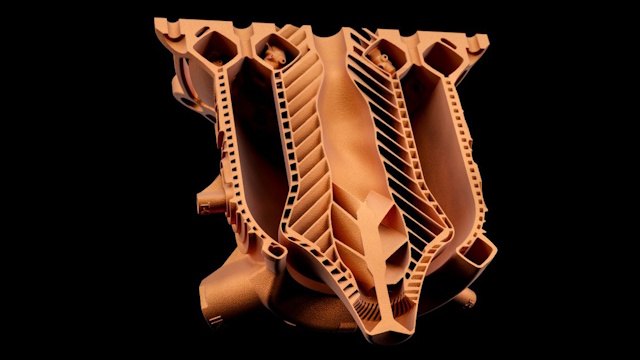
In an exciting development for aerospace technology, a generatively designed aerospike rocket engine has successfully completed its first hot fire test, demonstrating a new frontier in rocket design driven by artificial intelligence.
The engine, which measures 800 mm, was produced by startups Hyperganic and AMCM, utilizing AI’s generative design capabilities. The testing involved a cryogenic liquid oxygen and kerosene fuel mix, resulting in an impressive thrust of 5,000 Newtons. Although further scaling will be necessary for space travel, the quick development timeline suggests that significant progress is within reach.
Josefine Lissner, the CEO of LEAP 71, emphasized the engine’s unique design challenges and cooling requirements. “We were able to extend Noyron’s physics to deal with the unique complexity of this engine type,” said Lissner, encouraged by the test results which validate their physics-driven approach.
“Despite their clear advantages, aerospikes are not yet common in space access today. We are determined to change that,” added Lin Kayser, the co-founder of the company, outlining how Noyron aids in accelerating design processes.
The ongoing development is set to continue, with plans for additional testing scheduled for 2025.
